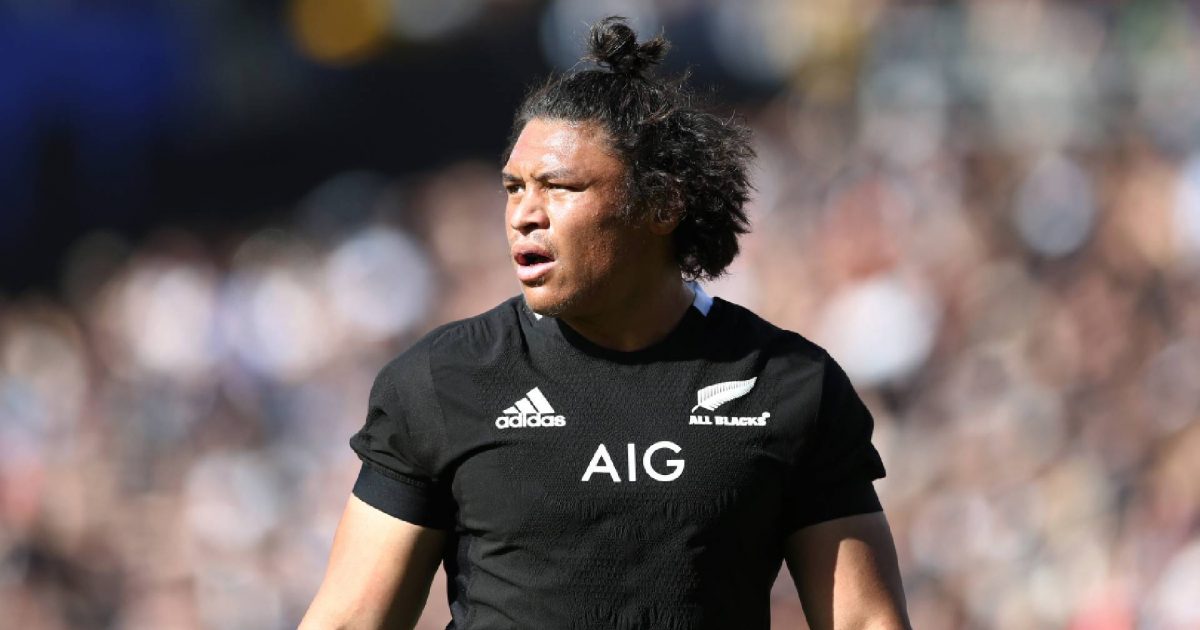'I think the New Zealand public had a pretty good understanding about how special that performance was'

Few players have dominated the test scene in such comprehensive fashion in the space of just two tests like Caleb Clarke did against the Wallabies over the past week-and-a-bit.
An impressive cameo appearance off the bench in his test debut in Wellington was followed by a first start in international rugby in Auckland two days ago, and it was at Eden Park where the 21-year-old dynamo stamped his authority in the All Blacks jersey.
Playing a vital role in his side’s 27-7 victory in front of his home crowd, it was Clarke who was largely responsible for Australia’s 42 missed tackles, as he slipped out of 14 of them himself.
The two-test starlet did so through his immense ball-running power to shine the brightest out of all the stars who graced the field in the second Bledisloe Cup encounter of the year.
So good was Clarke that subsequent comparisons to Jonah Lomu and Julian Savea have since been drawn to the youngster in the wake of the carnage he left as the All Blacks resurrected their Bledisloe Cup hopes following their dismal 16-all draw a week beforehand.
It’s no surprise, then, that the man who wasn’t even supposed to be playing XVs this year as he eyed a place at the now-postponed Tokyo Olympics with the All Blacks Sevens squad has been rewarded with the Healthspan Elite Performance of the Week award by Crusaders halfback Bryn Hall.
Speaking on the Aotearoa Rugby Pod, Hall was in awe of Clarke’s efforts against the Wallabies, pinpointing the standing ovation he received as he was replaced by Damian McKenzie in the second half as a testament to his efforts.
“I thought Caleb Clarke was tremendous. Every time he touched the ball, he just looked threatening, and he was threatening,” Hall said.
“Over 100 metres, defenders beaten right, left and centre. I can’t imagine the last time someone got a standing ovation after a game like that, [while] that young, so I think the New Zealand public had a pretty good understanding about how special that performance was.”
Hall attributed Clarke’s standout displays to his grounded mentality and likeable personality, describing the powerhouse Blues wing as “humble”, “level-headed” and “mature”.
“The biggest thing I liked about Caleb around that was, he was humble as well. Straight after his match, he had the press conference, and he’s just so level-headed and so mature for such a young kid.
“He had a great test match, he played well, getting all the applause in the world, but he’s very down-to-earth and I think that comes down to his background with [Clarke’s father and former All Black] Eroni as well.”
https://www.instagram.com/p/CGi9z-llo-n/
Those sentiments were echoed by former All Blacks hooker and Clarke’s Blues teammate James Parsons, who highlighted the international rookie’s commitment to his religious faith and community as key reasons behind his popularity.
“I think the biggest thing about that is his identity isn’t as a rugby player,” Parsons told the Aotearoa Rugby Pod.
“His identity is more than that, and what he can give to his community and his beliefs is probably more of a priority for him than Caleb Clarke the rugby player, and I think that’s why he is so well-liked by the public.
“To get a standing ovation in your first start, like it was a great performance, but being there and seeing it, it was exceptional.
“It was hair-raising on the back of your neck sort of stuff. I didn’t expect it. He played well, but that’s how infectious his personality is.”
Listen to the entire episode of the Aotearoa Rugby Pod in the player below:










































































